
Maria Temming
Assistant Managing Editor, Science News Explores
Maria Temming is the Assistant Managing Editor at Science News Explores. Maria has undergraduate degrees in physics and English from Elon University and a master's degree in science writing from MIT. She has written for Scientific American, Sky & Telescope and NOVA Next. She’s also a former staff writer at Science News.

All Stories by Maria Temming
-
 Earth
EarthLet’s learn about Earth’s secret stash of underground water
Groundwater provides drinking water to billions of people and is used to water crops worldwide.
-
 Science & Society
Science & SocietyInstagram influencers promote more unhealthy foods than other celebs
These findings could encourage new social media regulations to protect young users from being bombarded with unhealthy ads, says teen researcher.
-
 Life
LifeScientists Say: Cellulose
Cellulose is an abundant natural polymer found in plants and algae. It’s used to make everything from paper to clothing.
-
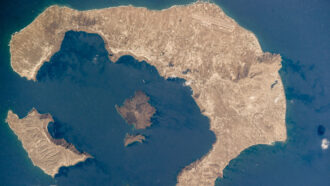 Earth
EarthEl volcán de Santorini erupciona más cuando baja el nivel del mar
Los datos que demuestran esta relación entre las erupciones de este volcán griego y el nivel del mar se remontan al menos a 360,000 años.
-
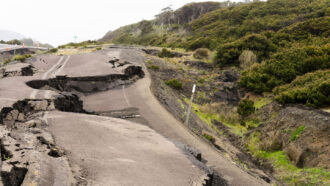 Earth
EarthScientists Say: Richter Scale
The Richter scale and other magnitude measures reveal the strength of an earthquake.
-
 Math
MathLet’s learn about pi
It’s not just an excuse to eat pastries. This number helps describe everything from the smallest particles to planets orbiting other stars.
-
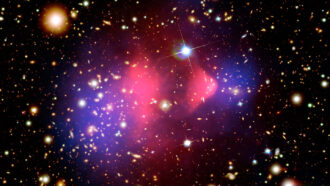 Physics
PhysicsScientists Say: Dark Energy
Dark energy is the unknown force causing the universe to expand faster and faster.
-
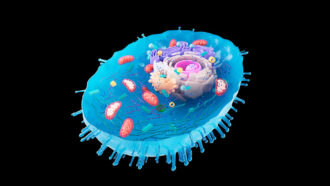 Life
LifeScientists Say: Eukaryote
Eukaryotes are living things whose cells package their genetic material inside a pouch called a nucleus.
-
 Animals
AnimalsGoldfish driving ‘cars’ offer new insight into navigation
Fishes’ internal sense of direction is not limited to their natural environment. The latest Wild Things cartoon from Science News for Students.
-
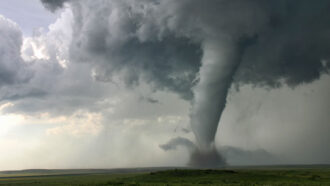 Earth
EarthLet’s learn about tornadoes
Tornadoes are often spawned by thunderstorms — but can also emerge from hurricanes and wildfires.
-
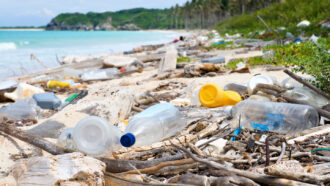 Environment
EnvironmentScientists Say: Pollution
Pollution is any substance or form of energy released into the environment that is harmful to people or other living creatures.
-
 Brain
BrainAmericans tend to see imaginary faces as male, not female
When people see imaginary faces in everyday objects, those faces are more likely to be perceived as male than female.